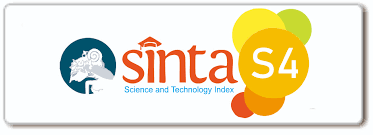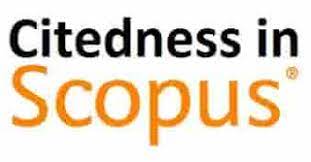Improving The Personality Character of Students Through Learning Islamic Religious Education
DOI:
https://doi.org/10.59373/attadzkir.v2i1.15Keywords:
Learning Strategy, Muslim personality, Islamic Education, LearnersAbstract
Islamic religious education is very important for the formation of one's personality. Guidance and direction are religious doctrines designed to make people believe in the existence of God and religion wholeheartedly, comply with religious orders in the form of worship, and have noble morals. Through studying Islamic religious education, the author hopes that someone can have good values in himself so that he can turn them into good behavior in everyday life. In addition, Islamic religious education can also enable a person not to do things that are not allowed in religion. The application of Islamic education is carried out by increasing piety to Allah SWT, and noble character is the embodiment of the faith that is believed by everyone. Therefore, combining happiness and piety in one person will avoid destructive, slanderous, and socially detrimental behavior, and is very dangerous for the unity and integrity of the nation in the future.
Downloads
References
Ahid, N., & Chamid, N. (2021). Implementation of Indonesian National Qualification Framework Based Curriculum in Higher Islamic Education. Jurnal Pendidikan Islam, 7(1), 109–122. https://doi.org/10.15575/jpi.v7i1.12425
Alabdulhadi, M. M. J. (2019). Religious tolerance in secondary Islamic Education textbooks in Kuwait. British Journal of Religious Education, 41(4), 422–434. https://doi.org/10.1080/01416200.2019.1585329
Anwar, K. (2021). Pancasila Village, Multicultural Education and Moderation of Diversity in Indonesia. Nazhruna: Jurnal Pendidikan Islam, 4(2), 221–234. https://doi.org/10.31538/nzh.v4i2.1238
Asher, J. J. (1972). Children’s First Language as a Model for Second Language Learning. The Modern Language Journal, 56(3), 133–139. https://doi.org/10.2307/324033
Badri, K. N. bin Z. (2022). Balanced Education According to Imam Al-Zarnuji. Tafkir: Interdisciplinary Journal of Islamic Education, 3(2), 135–147. https://doi.org/10.31538/tijie.v3i2.177
Baharun, H., Wahid, A. H., Muali, C., Rozi, F., & Fajry, M. W. (2022). Building Public Trust in Islamic School through Adaptive Curriculum. Jurnal Pendidikan Islam, 8(1), 1–14. https://doi.org/10.15575/jpi.v8i1.17163
Bahri, S. (2022). Pendidikan Akhlak Anak dalam Perspektif Imam Al-Ghazali. At-Tadzkir: Islamic Education Journal, 1(1), 23–41.
Banzon-Librojo, L. A., Garabiles, M. R., & Alampay, L. P. (2017). Relations between harsh discipline from teachers, perceived teacher support, and bullying victimization among high school students. Journal of Adolescence, 57, 18–22. https://doi.org/10.1016/j.adolescence.2017.03.001
Barmaki, R. (2021). Erving Goffman’s View of “Deviance”: “Self” and “Society” as the Sources of Deviancy and Conformity. Deviant Behavior, 42(2), 147–161. https://doi.org/10.1080/01639625.2019.1658845
Barton, G., Yilmaz, I., & Morieson, N. (2021). Authoritarianism, Democracy, Islamic Movements and Contestations of Islamic Religious Ideas in Indonesia. Religions, 12(8), 641. https://doi.org/10.3390/rel12080641
Boeree, C. (2017). Personality Theories: From Freud to Frankl. CreateSpace Independent Publishing Platform.
Danino, M., & Shechtman, Z. (2012). Superiority of group counseling to individual coaching for parents of children with learning disabilities. Psychotherapy Research, 22(5), 592–603. https://doi.org/10.1080/10503307.2012.692953
Dewi, T. S. R. (2018). Analisis Keterampilan Membaca Pada Mata Pelajaran Al-Quran Hadits Bagi Peserta Didik Madrasah Aliyah Negeri 3 Palembang. Muaddib: Islamic Education Journal, 1(1), 43–52. https://doi.org/10.19109/muaddib.v1i1.3044
Dorji, P., Gyeltshen, C., Sanyasi, G. D., Sithub, P., Dema, T., Yangzom, & Choden, Y. (2020). The Impact of Early Child Care and Development Education on Cognitive, Psychomotor, and Affective Domains of Learning. Asian Journal of Education and Social Studies, 29–38. https://doi.org/10.9734/ajess/2020/v12i130303
Fleckman, J. M., Scholer, S. J., Branco, N., & Taylor, C. A. (2021). Educating Parents About Corporal Punishment and Effective Discipline: Pediatricians’ Preparedness, Motivation, and Barriers. Academic Pediatrics, 21(1), 149–157. https://doi.org/10.1016/j.acap.2020.05.028
Hakim, M. N., & Jamal, M. S. A. N. (2021). Gaya Dan Strategi Ketua Yayasan Dalam Membentuk Loyalitas Dan Komitmen Pendidik. Chalim Journal of Teaching and Learning (CJoTL), 1(2), 169–181.
Harahap, U. H., & Hasanah, M. (2022). Women’s Perspectives on Career in Family and Community Environment. Al-Mada: Jurnal Agama, Sosial, Dan Budaya, 5(1), 30–41. https://doi.org/10.31538/almada.v5i1.1773
Hefner, C.-M. (2016). Models of Achievement: Muslim Girls and Religious Authority in a Modernist Islamic Boarding School in Indonesia. Asian Studies Review, 40(4), 564–582. https://doi.org/10.1080/10357823.2016.1229266
Imaduddin, I., Putra, H., Tukiyo, T., Wahab, A., & Nurulloh, A. (2022). The Effect of Servant Leadership on the Quality of Education Through the Characteristics of Millennial Teachers. Al-Tanzim: Jurnal Manajemen Pendidikan Islam, 6(4), 1092–1102. https://doi.org/10.33650/al-tanzim.v6i4.4069
Komalasari, M., & Yakubu, A. B. (2023). Implementation of Student Character Formation Through Islamic Religious Education. At-Tadzkir: Islamic Education Journal, 2(1), 52–64.
Laili, S. R., Hasanah, K. U., & Roifah, N. I. (2022). Development of Islamic Religious Education Teacher Competency and Character Through Blended Learning. Nazhruna: Jurnal Pendidikan Islam, 5(2), 864–875. https://doi.org/10.31538/nzh.v5i2.2359
Lucatelli, F. J. (2012). The Multiple Responsibilities of and within Organizations: An Interpretation of the Structure of W. Edwards Deming’s Quality System Including the Correlation of Personality Roles with Quality “Points”. Procedia - Social and Behavioral Sciences, 65, 632–637. https://doi.org/10.1016/j.sbspro.2012.11.176
Ma`arif, M. A., & Kartiko, A. (2018). Fenomenologi Hukuman di Pesantren: Analisis Tata Tertib Santri Pondok Pesantren Daruttaqwa Gresik. Nadwa: Jurnal Pendidikan Islam, 12(1), 181–196. https://doi.org/10.21580/nw.2018.12.1.1862
Maarif, M. A., Rofiq, M. H., & Nabila, N. S. (2020). Pendidikan Pesantren Berbasis Multiple Intellegences (Kecerdasan Majemuk). Tafkir: Interdisciplinary Journal of Islamic Education, 1(1), 1–19. https://doi.org/10.31538/tijie.v1i1.1
Mahmudin, A. S. (2021). Women’s Self Actualization in The Family (Moral Teaching in Serat Wulang Reh Putri). Nazhruna: Jurnal Pendidikan Islam, 4(2), 180–194. https://doi.org/10.31538/nzh.v4i2.1422
Majid, A. (2004). Pendidikan agama Islam berbasis kompetensi: Konsep dan implementasi kurikulum 2004. Remaja Rosdakarya.
Nieuważny, J., Nowakowski, K., Ptaszyński, M., Masui, F., Rzepka, R., & Araki, K. (2021). Does change in ethical education influence core moral values? Towards history- and culture-aware morality model with application in automatic moral reasoning. Cognitive Systems Research, 66, 89–99. https://doi.org/10.1016/j.cogsys.2020.10.011
Obelkevich, J., Roper, L., & Samuel, R. (Eds.). (1987). Disciplines of faith: Studies in religion, politics, and patriarchy. London ; New York: Routledge & Kegan Paul.
Okwuduba, E. N., Nwosu, K. C., Okigbo, E. C., Samuel, N. N., & Achugbu, C. (2021). Impact of intrapersonal and interpersonal emotional intelligence and self-directed learning on academic performance among pre-university science students. Heliyon, 7(3), e06611. https://doi.org/10.1016/j.heliyon.2021.e06611
Pasi, K. M., Rasyidin, R., & Harahap, R. M. (2020). Education System of Modern Islamic Boarding School in The Postmodern Era. Nazhruna: Jurnal Pendidikan Islam, 3(3), 311–323. https://doi.org/10.31538/nzh.v3i3.805
Rony, R. (2021). Urgensi Manajemen Budaya Organisasi Sekolah Terhadap Pembentukan Karakter Peserta Didik: The Urgency of School Organizational Culture Management Against Character Building Students. Tafkir: Interdisciplinary Journal of Islamic Education, 2(1), 98–121. https://doi.org/10.31538/tijie.v2i1.26
Saadah, R., & Asy’ari, H. (2022). Manajemen Sekolah Berbasis Pesantren Dalam Membentuk Karakter Peserta Didik. Kharisma: Jurnal Administrasi Dan Manajemen Pendidikan, 1(1), 1–11.
Sahin, A. (2018). Critical Issues in Islamic Education Studies: Rethinking Islamic and Western Liberal Secular Values of Education. Religions, 9(11), 335. https://doi.org/10.3390/rel9110335
Sindermann, C., Schmitt, H. S., Rozgonjuk, D., Elhai, J. D., & Montag, C. (2021). The evaluation of fake and true news: On the role of intelligence, personality, interpersonal trust, ideological attitudes, and news consumption. Heliyon, 7(3), e06503. https://doi.org/10.1016/j.heliyon.2021.e06503
Sirojuddin, A., Ashlahuddin, A., & Aprilianto, A. (2022a). Manajemen Kurikulum Terpadu Berbasis Multiple Intellegences di Pondok Pesantren. Munaddhomah: Jurnal Manajemen Pendidikan Islam, 3(1), 35–42. https://doi.org/10.31538/munaddhomah.v3i1.143
Sirojuddin, A., Ashlahuddin, A., & Aprilianto, A. (2022b). Manajemen Kurikulum Terpadu Berbasis Multiple Intellegences di Pondok Pesantren. Munaddhomah: Jurnal Manajemen Pendidikan Islam, 3(1), 35–42. https://doi.org/10.31538/munaddhomah.v3i1.143
Surya, P., & Rofiq, M. H. (2021). Internalisasi Nilai Karakter Jujur Dalam Proses Pembelajaran Di Kelas VIII Madrasah Tsanawiyah Unggulan Hikmatul Amanah Pacet Mojokerto. Munaddhomah: Jurnal Manajemen Pendidikan Islam, 2(1), 31–37. https://doi.org/10.31538/munaddhomah.v2i1.65
Wahab, Khairiansyah, H., & Misridah. (2020). Local Wisdom-based Character Values in Millennial Madurese Community: A Study of Molothen Traditions. Jurnal Pendidikan Islam, 9(1), 57–78. https://doi.org/10.14421/jpi.2020.91.57-77
Wahyuni, S., & Bhattacharya, S. (2021). Strategy of Islamic Religious Education Teachers in Increasing Student Learning Motivation. Tafkir: Interdisciplinary Journal of Islamic Education, 2(2), 229–249. https://doi.org/10.31538/tijie.v2i2.22
Wodon, Q. (2016). Early Childhood Development in the Context of the Family: The Case of Child Marriage. Journal of Human Development and Capabilities, 17(4), 590–598. https://doi.org/10.1080/19452829.2016.1245277
Zhou, X., & Taylor, Z. E. (2022). Differentiating the impact of family and friend social support for single mothers on parenting and internalizing symptoms. Journal of Affective Disorders Reports, 8, 100319. https://doi.org/10.1016/j.jadr.2022.100319
Downloads
Published
How to Cite
Issue
Section
License
Copyright (c) 2023 Nurul Komariah, Ishmatun Nihayah

This work is licensed under a Creative Commons Attribution-ShareAlike 4.0 International License.

At-Tadzkir: Islamic Education Journal by Perkumpulan Dosen Tarbiyah Islam Indonesia is licensed under a Creative Commons Attribution-ShareAlike 4.0 International License.
Based on a work at http://at-tadzkir.pdtii.org/index.php/tadzkir/index.








